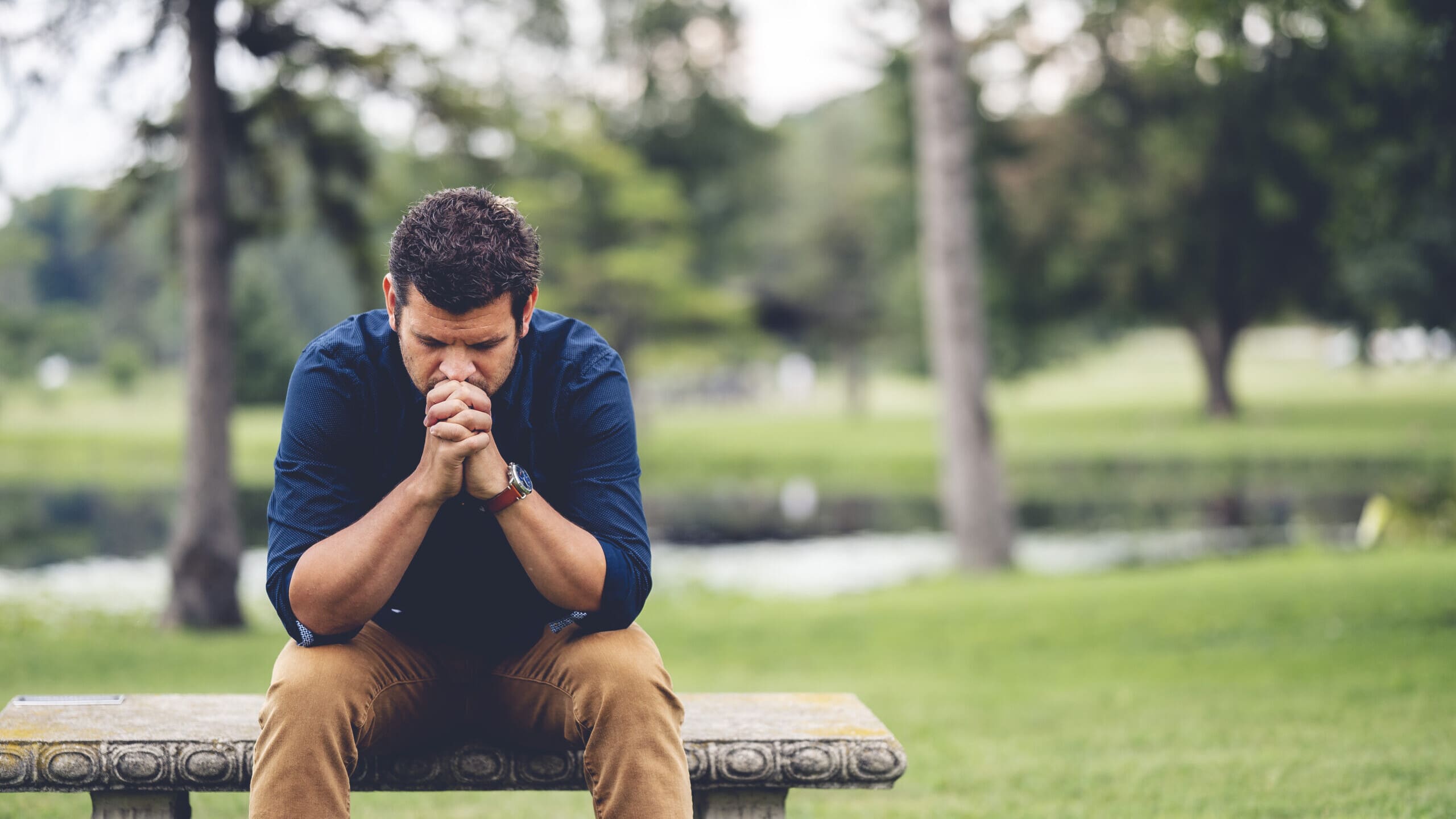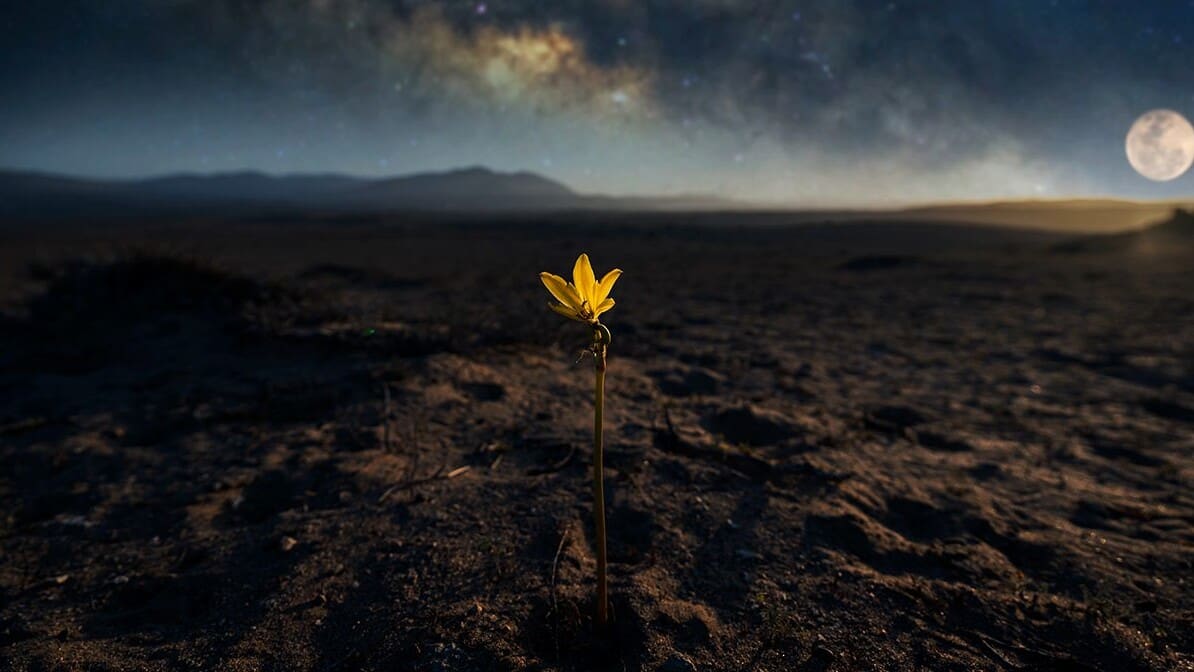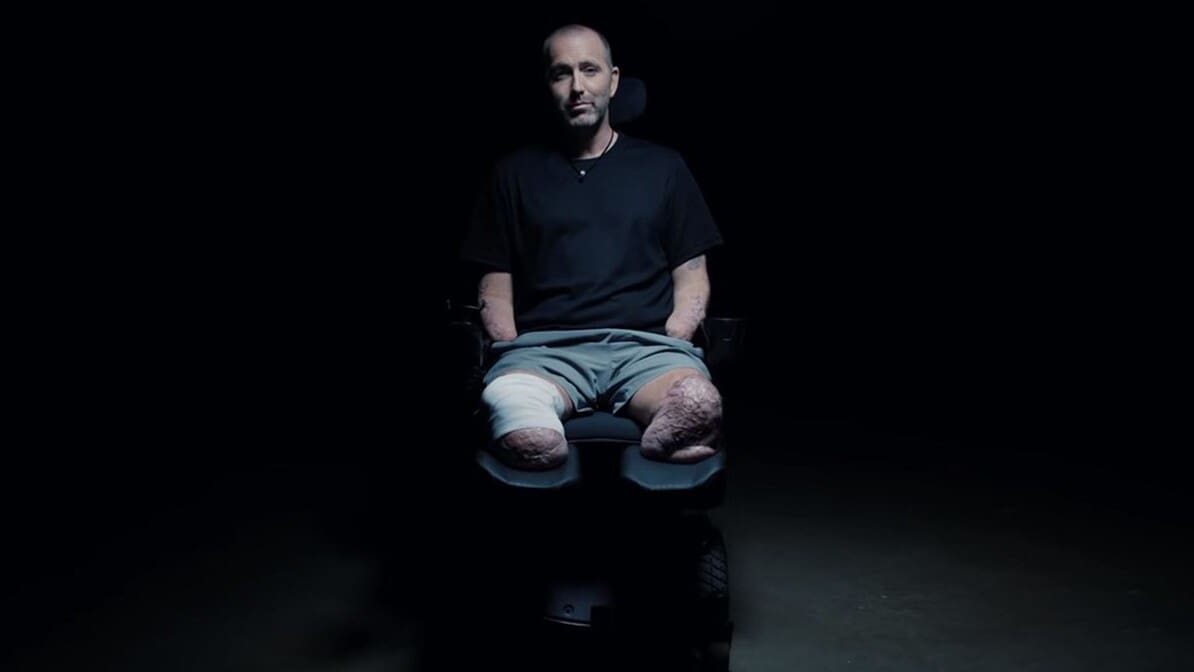
New Book Explains the Cure for Loneliness
In this interview, author York Moore, explains what he calls “heart hopes” and how they go hand-in-hand with his co-author Dr. Chapman’s well known “love languages.” Their new book, Seen. Known. Loved. promises to be life-changing for those suffering from isolation and loneliness. York discusses the epidemic of loneliness, shares why we can live busy lives and still be lonely, the consequences of loneliness, and explains why the only antidote to loneliness is putting God first in our relationships.
York believes that while the world focuses on COVID-19, there is another global malady that has also life threatening—loneliness.
Rhonda Robinson: York, thank you for joining me, your book is so timely. When you wrote this book, I’m going to guess COVID was not a thing.
York Moore: Yeah, that’s right.
In fact we, we turned in the final manuscript to just about two or three months before COVID hit and it began to accelerate. We went back to the drawing board on one of the chapters in specific that referenced the swine flu as an illustration. And you know, the reality is as this book came out and even now we’re in August, we still don’t know how this story is going to end. Maybe the reality is that it could very likely get worse here in the U S before it gets better. And so we have to be sensitive in terms of how we engage the issue, it’s having a great impact on communities and particularly communities of color and disenfranchised communities. But the reality is that even before COVID hit, there was this secret pandemic that was unfolding all around the world called loneliness.
York: And in fact, loneliness is such a problem in our day and age that the European union has a full time minister of loneliness. Tracey Crouch is her name. She was appointed in 2018 and her department’s full time job for the entire set of countries that make up the European union is to combat loneliness.
Because we understand that, people who suffer from loneliness, profound loneliness, extended periods of loneliness are at higher risks for drug addiction, alcohol addiction, and our young people cutting. Certainly porn addiction,nd many, many maladies, social maladies, come from being isolated and lonely–so you have this pandemic.
And now on top of it, we overlay this,global health crisis COVID-19, where people are forced to stay at home. They’re forced to social distance they’re forced to wear masks in public,and for all good reasons. But what that’s done is it’s actually accentuated this very real problem that continues to have a deep toll on society.
RR: Yes, it does. It may be a long time before we fully comprehend the ramifications of just our precautions. Could you expand on that a little bit more?
York: Sure. You know, there are all kinds of studies documentations from the American Psychological Society and the Journal of the American Medical Association, all kinds of recent studies that talk about the real impact psychologically physiologically on people. And it really shouldn’t surprise us, right? Because if it’s true that we were made in the image of God and God himself is a tri-unity, He is a community. There is father, son, and spirit, and these persons of the Trinity, to use Christian language, they have a relationship with one another, a love relationship of give-and-take, of reciprocity, of entanglement. And so we have this concept of togetherness that actually is born out of a rich, deep theology that underlays the entire story of God and togetherness. A part of what it actually means to be human.
We know from many, many decades ago, studies that were done with children that were not cared for properly in their infancy children who were left in orphanages with very little human contact and the physiological impact that that has on the brain is significant leading to all kinds of disorders like reactive associative disorder and all kinds of disorders, that create real problems later on into adulthood. That can’t be repaired.
So if it’s true, we’ve been created in the image of a togetherness God, then a part of the normal, natural, healthy human experience should be togetherness with one another. It’s how we experience what it means to be human.
RR: I have never thought of it like that. It is simply profound when you think of it like that. I’ve always thought the experience of being human, the need for togetherness, is why God put us into families. But that also, that simply goes hand in hand with what you’re saying.
York: Yeah, that’s right. And when we come into the body of Christ, when we make the decision to step into a relationship with God through Jesus, which is really the core, the heart of Seen, Known, Love, this book, that Dr. Gary Chapman and I wrote, at the very heart of that is inviting people to take the first step that can change their forever.
What we’re really inviting them into is not just some kind of agreement, not just some kind of assent to theological or doctrinal truth. We’re inviting people into a relationship where they can feel loved.
In fact, we’ve written this book Seen, Known Loved to be the kind of “More Than a Carpenter” for an emotionally curious and sophisticated generation. This generation has been raised on Dr. Phil and Oprah. And pop-psychology has been the normal part of the cultural backdrop in America for the last, at least 30 years.
It’s very easy to feel invisible in today’s world.
I know I grew up on these things and when I came to faith as idiots studying philosophy at the University of Michigan persecuting Christians. In fact, my nickname on campus was Satan. And when I became a Christian most people were asking intellectual questions about the faith. Are the new Testament documents historically accurate? Is there evidence for the resurrection? Those kinds of things.
And so you had a book by Josh McDowell, More Than a Carpenter and other books like, Evidence That Demands a Verdict. Those were lifelines for me as a brand new Christian. In today’s environment, people aren’t so much asking those questions anymore. They’ll ask those questions, maybe down the line, but what people are really asking for is some kind of evidence that they’re seeing.
And so, we want people to read this book and feel as if they’re seen by God, they’re known deeply. We want them to feel, or experience, the love of God by reading this book.
RR: You say that the only real cure, or the antidote, for loneliness is putting God first in your relationships.
York: That’s right.
Because, if you think about it, every other relationship, as meaningful and fulfilling as it could possibly be and certainly we can have relationships that have nothing to do with God, and they can be deep and meaningful, and transformative. But all of the relationships that we have are shadows. They are mimicry of the kind of relationship that we’re supposed to have with our Creator God.
Even the husband-wife relationship is a shadow of the intimacy that we’re supposed to have with our Creator God. And so, when we experience love, and we should experience love as fathers love their sons, as a mother’s love their daughters, as husbands love their wives, all of the familial language that we’re left with.
And certainly friends.
Friendships can be very deep and abiding. But the reason why we feel the way we do, about other human beings, is because we have been created in this togetherness God. This, God of community, father, son, spirit, and he invites us into this, right?
York: In fact, the word of God tells us in John, that when we follow Christ, we become one with Him. And one with the Father. We start to enjoy the kind of community that we were created for. And I’ll tell you this, that at the end of the story, all the way at the very end, in the book of Revelation, this crescendo where it says the home or the tabernacle of God is now amongst mortals. The vision of God is actually a vision of togetherness.
It’s where we’re around the family table of God, on that mountain, enjoying that, that feast that Jesus said he would never drink the fruit of the vine until it finally had its fulfillment. Or its ultimate expression in the kingdom of God, where we’re together with one another. And we’re together with our creator God
RR: We are experiencing challenges, in some ways we’ve never experienced in other ways we haven’t experienced it in decades. How can love, help us through these times? You spoke about our love and relationship with the Lord, but what about with one another? We can be in families, and we can be in crowds, and still be lonely.
So there’s that missing element there?
York: And in some ways this is nothing new. I mean, you know, I’m in my early fifties by some people’s account that I’m a spring chicken. It doesn’t feel that way to me personally, but I’m old enough to remember an old newspaper column by a woman named Ann Landers. People would write in from all over the nation, hoping for advice on love, on relationships with love. Newspapers have gone the way the dinosaur, and people don’t look for a lot of advice in personal columns anymore. But we are doing the same thing with social media. You know, whether it’s Pinterest or Instagram or Snapchat or whatever it might be, we’re looking for some kind of guidance, some kind of opportunity to connect with other people. And the reason why, again, is because we’re driven toward it.
Part of the genius of Dr. Gary Chapman’s book, Five Love Languages, is that it has impacted the lives of millions, myself included over the decades. He very carefully crafts this idea of how we enter into, or experience, or live into love. And as helpful as that’s been in my marriage with my wife of 23 years, of all of the people who have gone through all of the marriage conferences with Dr. Gary Chapman, he would suggest that the love languages that we experienced between one another are actually a foreshadow or a glimpse of what it actually means to have a relationship with God.
And the great news is that God speaks our love language.
I’m a word of affirmation guy, that’s my primary love language. And as a word of affirmation guy, when I get words of praise of recognition, someone says, they’re proud of me, or they recognize something that I’ve done, I feel seen. And so what we’ve done in Seen. Known. Love, I’ve taken my 30 years as an evangelist, the expertise that I’ve gotten over the years of sharing Christ with hundreds of thousands of people, and Dr. Gary Chapman’s love language, and we’ve crafted a small book. You can read it in just sitting and help people understand how to experience God’s love through their love language.
Because that makes all the difference in the world.
RR: Is there anything that you would like to add that we haven’t covered, that you feel like it would be really important for our readers to know?
York: Yeah, for sure. You know, I think in, Seen. Known. Loved, what we’ve done is taken what I call the five heart hopes. Over the last 30 years as an evangelist, I’ve discovered that people have lots of hopes and dreams and aspirations. But at the end of the day, we’re all driven by one core quest, right?
So one person says am I leaving a legacy? Am I having an impact? That’s what gets that person up in the morning. And that’s what she thinks about as she goes to bed.
Another person is asking the foundational question. Do I have worth? Am I living a worthy life? And am I living a life that’s worthwhile?
Right?
Two very different drivers or aspirations. And I’ve come to believe, that just like, there are five love languages, I believe that there are five heart hopes, and that there’s a correlation between these two.
Heart hopes.
So part of the reason why we’re hoping this book will have a real deep impact, is not only are we introducing people to the five love languages, which many people have already discovered, but we’re also then tying that to a person’s heart hope. So that they can begin to see the reason why God has made them, the way that they are. And as they can live into their heart hope, as it’s expressed through our relationship with God.
For instance, if my love language is words of affirmation. I’m almost always asking that heart, hope question: Am I seen? Do people see me? And my worst fear is to be invisible.
While during this COVID-19 I certainly feel invisible. Nobody can see my face. I couldn’t hug my own mother for four months. I feel very, very invisible during this time, but when I have a relationship with God, no matter what the circumstances are, I can experience God’s words of affirmation.
As I read the word of God, I can experience what it feels like to be loved by being seen.
A person whose love language is gifts, for instance, she’s almost always asking the question, do I have worth. Well during these times, it’s very easy to feel worthless. It’s very easy to feel as if our lives don’t matter. We can’t gather, we can’t give, we can’t receive. But when we have a relationship with God, our sense of self worth, our sense of worthiness is all tied to experiencing God on a daily basis.
So through this book, we help people to do that.
Number one, through engaging in the Bible.
We did field testing with this book, and we found a hundred percent of non-Christian readers as they went through this book, made a decision to engage with the Bible, any for the first time in their lives.
We challenged people to engage in a relationship with God through prayer. So what does it actually mean to converse back and forth, to listen to the voice of the Holy spirit, to speak to God, using the scripture, to guide them.
So we introduce people to prayer. Worship is a big one.
So how do we actually give words of affirmation back to God to tell them that He’s beautiful, that He is worthy, He is glorious. And then community. My hope is that as people read this book, and this is the kind of book you want to buy in batches, you can give to that wayward niece, that friendly neighbor, the person at the grocery store, the people in our lives, and we can encourage them to have a relationship with God.
But at the end of the day, my hope is that people don’t just pray to receive Jesus. They also enter into this togetherness, they join a local church. They have great Christian community as a result of reading this book.
Trending Now
Sign up today for your Inspiration Today Daily Newsletter
Supercharge your faith and ignite your spirit. Find hope in God’s word. Receive your Inspiration Today newsletter now!
Rhonda Robinson
Rhonda Robinson is a speaker and the author of Freefall: Holding Onto Faith When the Unthinkable Strikes, offering women spiritual wisdom to transform the darkness into a season of profound change and emerge with vision and purpose. Learn more at rhondarobinson.tv
Related Articles
January 28, 2026
I Just Knew It Was God: From Searching to Finding Faith
From the outside, Ekaterina’s life looked successful. She had a college degree, a strong career,…
January 26, 2026
How to Overcome Old Wounds with Resilience
How Do You Deal with Old Wounds? Everyone is talking about trauma, but very few are talking about…
November 21, 2025
Thank You … Lord
Gratitude transforms our lives and draws us closer to God. This article explores how practicing…
October 27, 2025
So, Is God Good?
Many people wrestle with the question, is God good, especially when life brings pain and loss.…
Next Steps To Strengthen Your Walk
Inspiration Today Newsletter
Supercharge your faith and ignite your spirit. Find hope in God’s word. Receive your Inspiration Today newsletter now!
Christian Articles
Find articles to strengthen your walk and grow your faith. We have a wide range of topics and authors for you.
Submit A Prayer Request
We are here for you. Simply click on the button below to reach us by form, email or phone. Together we will lift our hearts and voices with you in prayer.





